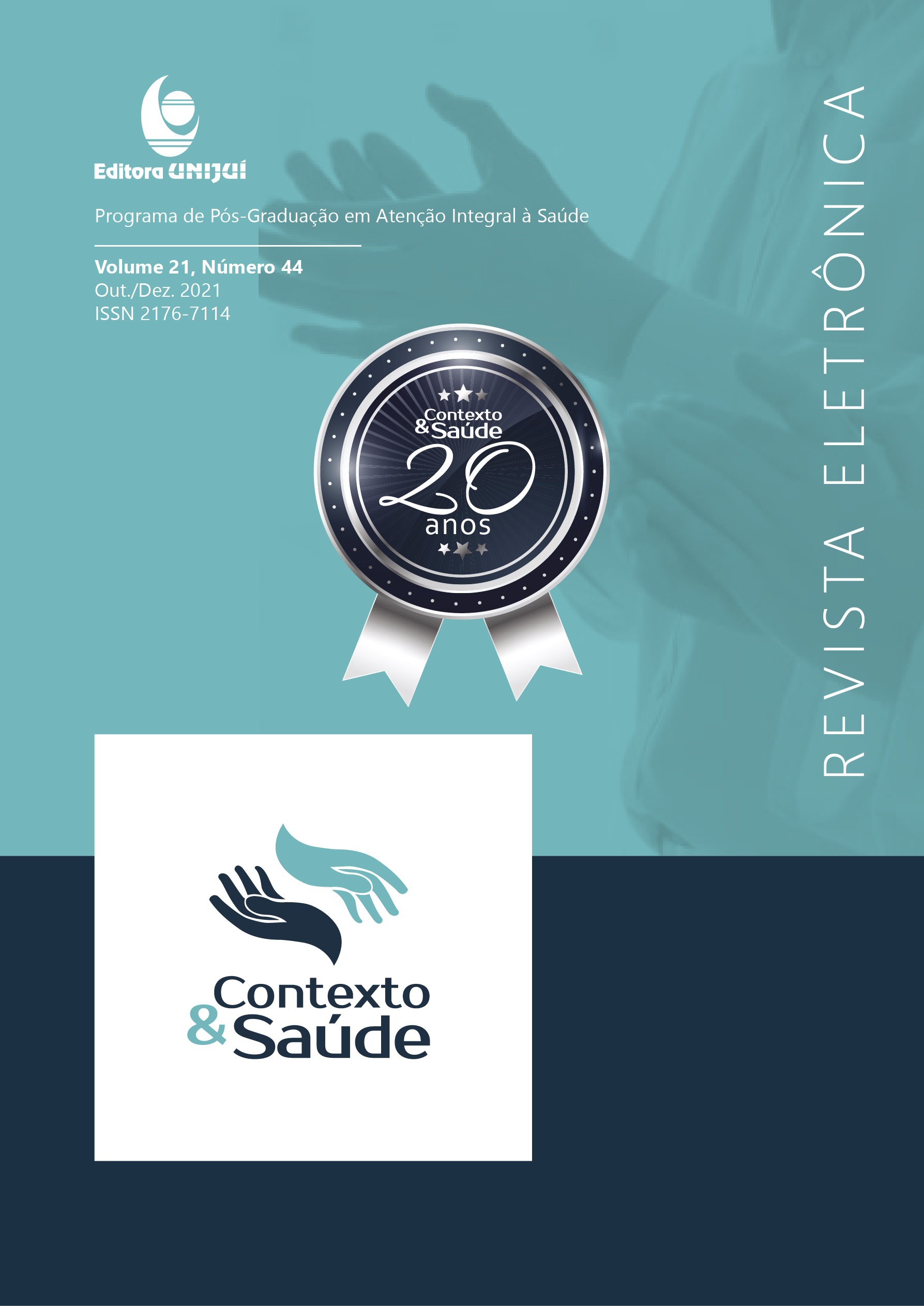QUALIDADE DE VIDA DE PACIENTES AMBULATORIAIS COM DOR CRÔNICA E CANCER GASTROINTESTINAL
QUALITY OF LIFE OF PATIENTS IN AMBULATORY CARE WITH CHRONIC PAIN AND GASTROINTESTINAL CANCER
DOI:
https://doi.org/10.21527/2176-7114.2021.44.9874Resumen
Objetivou-se identificar a QV de pacientes com câncer gastrointestinal e dor crônica e caracterizar os dados sociodemográficos, clínicos, terapêuticos e de gradação da dor, associando-os aos domínios de QV. Trata-se de um estudo transversal, quantitativo, do qual participaram pacientes com câncer gastrointestinal e dor crônica, atendidos em ambulatório de gastroenterologia oncológica de um hospital geral, na cidade de São Paulo, Brasil. Utilizou-se um questionário sociodemográfico e clínico, o instrumento EORTC -QLQC30 e o Brief Pain Inventory (BPI). Os dados foram submetidos a análise descritiva, frequências absolutas e porcentuais, e analítica, buscando-se correlacionar os domínios de QV, Dor, Performance Status (PS) dos pacientes, mediante o coeficiente de correlação de Spearman. Para comparar os domínios das escalas do QLQ-C30 e BPI com as variáveis de interesse, utilizou-se Teste T. Participaram do estudo 13 pacientes, maioria sexo masculino, casado, religioso, classificação econômica C2 (61,5%). Todos encontravam-se com dor no momento da coleta de dados, com média 2,54 (DP=2,88) pelo BPI e com pior escore referido das últimas 24 horas em 8,15 (DP=2,03). As principais alterações de QV evidenciadas foram, além da dor: fadiga, insônia e perda de apetite, sendo que quanto mais avançada a doença, piores os sintomas e o prejuízo funcional. Os dados evidenciaram que os pacientes convivem com dor de intensidade moderada e, se pior estado clínico, maior intensidade. A dor compromete a qualidade de vida desses pacientes em múltiplos aspectos, evidenciando que medidas precisam ser empreendidas para favorecer o controle álgico, do esquema terapêutico medicamentoso às atividades educativas e assistenciais.
Descargas
Publicado
Cómo citar
Número
Sección
Licencia

Esta obra está bajo una licencia internacional Creative Commons Atribución 4.0.
Ao publicar na Revista Contexto & Saúde, os autores concordam com os seguintes termos:
Os trabalhos seguem a licença Creative Commons Atribuição 4.0 Internacional (CC BY 4.0), que permite:
Compartilhar — copiar e redistribuir o material em qualquer meio ou formato;
Adaptar — remixar, transformar e criar a partir do material para qualquer fim, inclusive comercial.
Essas permissões são irrevogáveis, desde que respeitados os seguintes termos:
Atribuição — os autores devem ser devidamente creditados, com link para a licença e indicação de eventuais alterações realizadas.
Sem restrições adicionais — não podem ser aplicadas condições legais ou tecnológicas que restrinjam o uso permitido pela licença.
Avisos:
A licença não se aplica a elementos em domínio público ou cobertos por exceções legais.
A licença não garante todos os direitos necessários para usos específicos (ex.: direitos de imagem, privacidade ou morais).
A revista não se responsabiliza pelas opiniões expressas nos artigos, que são de exclusiva responsabilidade dos autores. O Editor, com o apoio do Comitê Editorial, reserva-se o direito de sugerir ou solicitar modificações quando necessário.
Somente serão aceitos artigos científicos originais, com resultados de pesquisas de interesse que não tenham sido publicados nem submetidos simultaneamente a outro periódico com o mesmo objetivo.
A menção a marcas comerciais ou produtos específicos destina-se apenas à identificação, sem qualquer vínculo promocional por parte dos autores ou da revista.
Contrato de Licença (para artigos publicados a partir de setembro/2025): Os autores mantém os direitos autorais sobre seu artigo, e concedem à Revista Contexto & Saúde o direito de primeira publicação.

